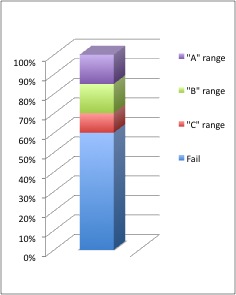Physics 116A (Winter 2009): Mathematical Methods in Physics I
Course information
Instructor: Stefano Profumo
Office: ISB, Room 325
Phone Number: 831-459-3039
Office Hour: Wednesdays 9:00 AM - 11:00 AM
E-mail: profumo AT scipp.ucsc.edu
Teaching Assistant: Peter Manning
Office: NAT2, Room 308
Phone Number: 480-282-2021
Office Hours: Mondays 4:00 PM -- 6:00 PM
E-mail: pmmannin AT ucsc.edu
Homework Grader: Melissa Downey
E-mail: silverstarsaboveme AT gmail.com
Click here to download the syllabus in PDF format
Class Hours
Lectures: Tuesdays and Thursdays, 2:00 PM - 3:45 PM, Phys. Sc. 110
 FINAL DISCUSSION SECTION: TUESDAY MARCH 17 1:30-3:00PM - CLASSROOM UNIT 1
FINAL DISCUSSION SECTION: TUESDAY MARCH 17 1:30-3:00PM - CLASSROOM UNIT 1
Discussion Section: Wednesday evening, 5:00 PM - 6:30 PM,  New Location: Phys. Sc. 110
New Location: Phys. Sc. 110
Course description
- Infinite series including power series
- Complex numbers and some functions of a complex variable
- Topics in linear algebra including matrices and determinants, systems of linear equations, eigenvalue problems and matrix diagonalization
- Asymptotic expansions and special functions
Prerequisites
- Physics: 5A/L, 5B/M, 5C/N
- Mathematics: 23A, 23B
Required Textbook
- Mathematical Methods in the Physical Sciences by Mary L. Boas
Other Textbooks
- Mathematical Methods for Scientists and Engineers by Donald A. McQuarrie
- Essential Mathematical Methods for Physicists by George B. Arfken and Hans J. Weber
Course Outline
| Topic |
Reading |
Period |
| Infinite Series, Power Series |
Boas, Chapter 1 |
Jan 6 - Jan 15 |
| Complex Numbers |
Boas, Chapter 2 |
Jan 20 - Jan 29 |
| Linear Algebra and Vector Spaces |
Boas, Chapter 3 |
Feb 3 - Mar 3 |
| Special Functions |
Boas, Chapter 11 |
Mar 5 - Mar 10 |
| Review |
|
Mar 12 |
Course Grading and Requirements
Student evaluations will be based on their performance in the following four tasks. The tasks and their relative weights in determining the students' overall course grades are given below:
- 30% Weekly Homework (9 problem sets)
- 10% Collaborative Learning Problems in Discussion Sections
- 20% Midterm Exam (Tuesday, February 10, 2008, 2:00 PM)
- 40% Final Exam (Thursday, March 19,
7:30-10:30 PM)
|

|
Weekly homework assignments will be handed out each Thursday and are due at
the beginning of class on the Thursday of the following week. The homework problem
sets are (effectively) not optional, and will consist of a few problems from Boas' textbook. You are encouraged to discuss the class material and homework
problems with your classmates and to work in groups, but all submitted problems
should represent your own work and understanding. Late homeworks can be submitted to the grader, but will not contribute any points to the final grade. The Grader will grade each homework, and is responsible for the given grade. Homework solutions will be made available on the course website each due date.
A few problems will be assigned at each discussion section to groups of 3-4 students (collaborative learning), coordinated by the teaching assistant. Grading will be given to those present to the discussion section. Under special circumstances, students can get the collaborative learning discussion section assignments in advance and turn them in to the Teaching Assistant if they cannot attend the section.
The midterm exam and the final exam will be held in the same classroom as
the lectures. The midterm will be a 1.5 hour written exam on the material covered up to February 5th, while the final will be three hours long and cover
the complete course material. Both the midterm and the final will be open-book (you can bring with you any book or notes), but only non-graphical, non-programmable calculators will be allowed (it will be to the discretion of the Instructor to decide whether a calculator is or not allowed). Laptop computers and cellular phone will not be allowed. A practice midterm and final will be handed out a week before the exams. You must take the final exam to pass the course.
The minimal score not to fail the class is 60%.
The final evaluations will be as follows:
- 60% to 70%: C range
- 70% to 85%: B range
- 85% to 100%: A range
|

|
Homework exercises
The solutions are password protected, please email the instructor if you don't know the username and password.
FOR THOSE USING THE 2ND EDITION: CLICK HERE TO DOWNLOAD THE CORRELATION LIST OF 2ND AND 3RD EDITION PROBLEM NUMBERS FOR PROBLEMS WHICH APPEAR IN BOTH EDITIONS (PASSWORD PROTECTED)
Galileo's Corner
La filosofia e' scritta in questo grandissimo libro che continuamente ci sta aperto innanzi a gli occhi (io dico l'universo), ma non si puo' intendere se prima non s'impara a intender la lingua, e conoscer i caratteri, ne' quali e' scritto. Egli e' scritto in lingua matematica, e i caratteri son triangoli, cerchi, ed altre figure geometriche, senza i quali mezzi e' impossibile a intenderne umanamente parola; senza questi e' un aggirarsi vanamente per un oscuro laberinto. (Galileo Galilei, Il Saggiatore, 1623)
Philosophy (Knowledge) is written in that great book which ever lies before our eyes (I call it the Universe), but we cannot understand it if we do not first learn the language and grasp the symbols in which it is written. It is written in mathematical language, and the letters are triangles, circles and other geometrical figures, without which means it is humanly impossible to comprehend a single word; without knowledge of those, it's a useless wandering in a dark labyrinth.
Last reviewed 01/29/2009 by Stefano Profumo.






![]() FINAL DISCUSSION SECTION: TUESDAY MARCH 17 1:30-3:00PM - CLASSROOM UNIT 1
FINAL DISCUSSION SECTION: TUESDAY MARCH 17 1:30-3:00PM - CLASSROOM UNIT 1
![]() New Location: Phys. Sc. 110
New Location: Phys. Sc. 110

